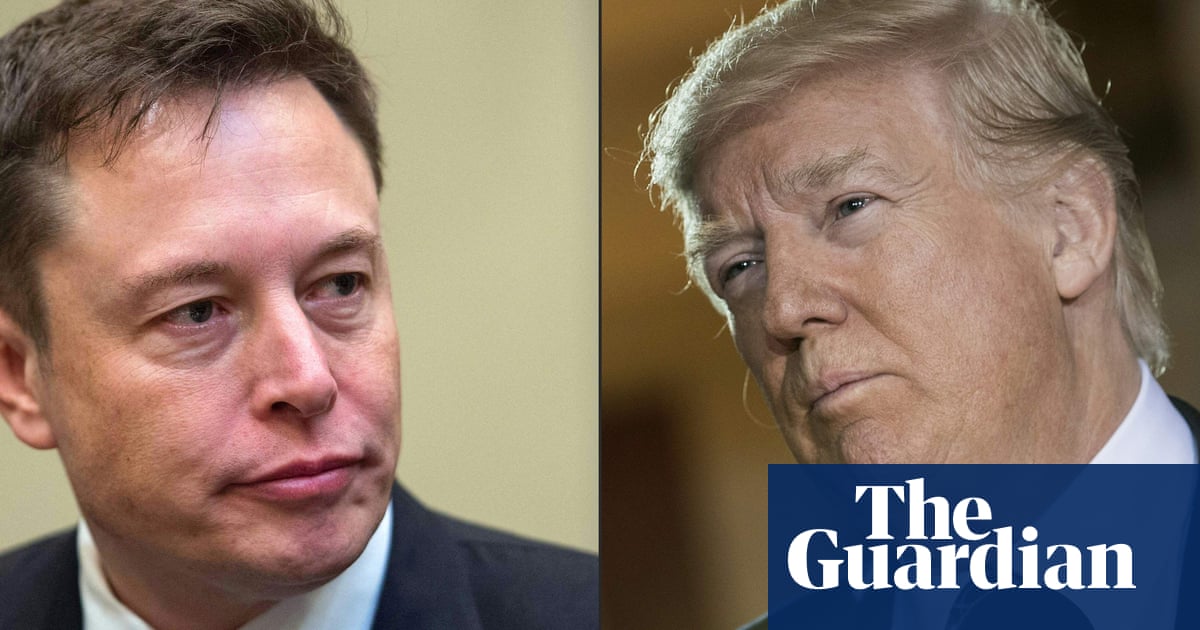Banned from Twitter: accounts that may be reprieved after Musk takeover

Elon Musk’s self-avowed status as a “free speech absolutist” raises the possibility he will lift the ban on people whose Twitter accounts have been permanently suspended from the platform. The world’s richest man, who has agreed to buy Twitter for $44bn (£34bn), has said he prefers giving users a “timeout” instead of a lifelong ban.
Here are some of the most high-profile figures banned from Twitter who might be hoping for a reprieve.
Donald Trump
The then US president’s account was suspended on 8 January 2021, two days after the storming of the US Capitol. Announcing the ban, Twitter cited Trump’s repeated violations of the company’s rules and the risk of the “further incitement of violence”. Trump, who had more than 88 million followers when he was banned, said on Monday he does not intend to return to Twitter, sticking with his rival platform, Truth Social.
Marjorie Taylor Greene
The personal account of the Republican Georgia congresswoman was suspended permanently in January this year for violating policies on coronavirus misinformation. She has since expressed hope, on her official government account, that she would again be able to tweet using her private profile in the wake of the Musk deal.
Alex Jones
The rightwing conspiracy theorist’s account, and that of his Infowars website, were suspended in 2018 due to violations of the platform’s abusive behaviour policy. The two accounts had about 1.3 million followers combined.
Milo Yiannopoulos
The rightwing writer was banned in 2016 for his role in the online abuse of actor Leslie Jones over her role in a reboot of Ghostbusters. Yiannopoulos told Breitbart.com his suspension was “cowardly” and evidence that Twitter was a “no-go zone for conservatives”.
Politics for All
The popular UK news aggregation service was banned in the UK in January for violating the rules on platform manipulation and spam. Its success at going viral on Twitter had attracted hundreds of thousands of followers, including MPs and government ministers.
David Icke
One of the UK’s most prominent conspiracy theorists, Icke was banned in 2020 for violating policies on coronavirus misinformation. The former BBC presenter had made numerous unfounded claims about the virus on several internet platforms, including a discredited theory that it was linked to the rollout of the 5G mobile network.
Katie Hopkins
The British rightwing commentator’s account was permanently suspended in 2020 for violating the platform’s “hateful conduct” policy. Hopkins, who had more than 1.1 million followers, was removed to “keep Twitter safe”, according to the company. Her historic comments had included comparing migrants to cockroaches and claiming the photograph of a dead Syrian boy lying on a beach, which had prompted a wave of compassion across Europe, was staged.
Sign up to First Edition, our free daily newsletter – every weekday morning at 7am
Alex Berenson
The US independent journalist was banned for violating the site’s coronavirus misinformation rules. He has subsequently filed a federal lawsuit against Twitter seeking his reinstatement.
Steve Bannon
The account of the former Trump adviser was suspended in 2020 after he called for the beheading of Dr Anthony Fauci, a key figure in the US government battle against Covid-19, and the FBI director, Christopher Wray. He also called for the posting of their heads outside the White House as a “warning”.
David Duke
The former Ku Klux Klan grand wizard had his account permanently suspended in 2020 due to repeated violations of Twitter rules on hateful conduct. Twitter’s decision to permanently ban Duke came more than a decade after he created his account, in 2009, and more than eight years after he started posting regularly, in 2012.


